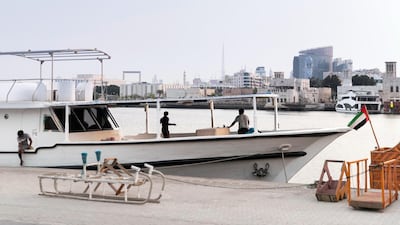Police in Dubai turned to data analysis to help protect the public from opportunistic thieves.
Officers at Naif Police Station first began a study of such crimes in the area three years ago.
Research by the force's Criminal Data Analysis Centre was used to predict the behaviour of criminals and raise the awareness of would-be victims.
Most thieves operated in twos or threes and chose older people as their targets.
The research found that three main methods were used by offenders.
“Spitting or spraying a liquid on victims and obstructing their way, then pretending to offer help are two scenarios,” said Brig Tariq Tahlak, director of Naif Police station.
A third scenario - which police said was less common because it required dexterity - involved cutting into a person's pocket to steal items like phones and wallets.
"The study also revealed where and when incidents mostly happen and that thieves work in gangs of a minimum of two or three people," Brig Tahlak said.
Criminals tended to congregate close to banks and cash machines in the early hours of the morning, the study found.
"The study's a proactive strategy to reduce pickpocketing and thefts - mainly from bank clients - based on identifying potential victims, especially those who carry unsecured large sums of cash," Brig Tahlak said.
Police used the data to help spread awareness of the problem to the public.
Incidents of pickpocketing in Naif fell from 57 in 2018 to seven last year.
Two crimes have been reported in 2021.
“There are many businesses in this area, exchange centres, banks and shops, and so stealing from bank clients and others in the area was a security concern for us," Brig Tahlak said.
“But since this scheme was launched, our teams have gained great experience, and are now more skilled at identifying potential victims, and approaching them before thieves do.”
Those most at risk include people visiting banks on behalf of their employers or bank clients who regularly carry large sums of money.
Patrol officers advise people to avoid walking long distances with large sums of cash and not to count bills in public places.
Brig Tahlak said there was one instance when a company employee who was entrusted with more than Dh1 million in a plastic bag rode a bicycle to the bank to deposit the money.
“Companies should hire two employees to carry out bank transactions and they must use a car, even if the bank was at a short distance from the company’s location,” he said.










